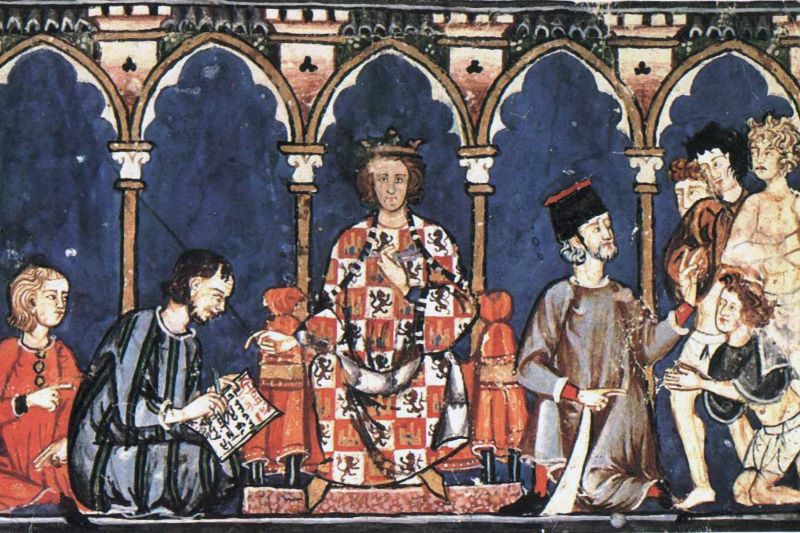Each of 50 Weeks in the City of Science features a text about selected research in a given subject area carried out by scientists from the universities forming the Academic Consortium Katowice City of Science. The texts we publish give insight into the diversity of issues scientists deal with and show the research potential that is dormant in the universities of the consortium.
| Agnieszka Kliks-Pudlik |
Our Week #9 of 50 Weeks in the City of Science is Three Cultures Week dedicated to Christian, Jewish and Muslim cultures. University of Silesia scientists deal with research on intercultural communication and are convinced that understanding the history and culture of a given country is key to language learning.
‘We deeply believe that in the age of many conflicts and spreading intolerance, only dialogue and attempts of mutual understanding can bring us the very desired peace. Our number one priority is to carry out scientific research that—combined with history and art—contribute to a better understanding of foreign languages and may therefore change the way we perceive another person,’ underline the curator and producer of Three Cultures Week: Aniela Kucharska, PhD and Cecylia Tatoj, PhD from the USil Faculty of Humanities.
It was Spain during the reign of King Alfonso X (1221-1284), who managed to create harmony between three religions: Judaism, Christianity and Islam, that inspired our researchers to develop the programme for Three Cultures Week | Wikimedia Commons
The scientists specialise in linguistics and introduce language and applied linguistics students into the intricacies of the language of Cervantes, explaining its structure and showing its connections with history, culture, and the arts. Moreover, both carry out classes in the history of Spain and Spanish-speaking countries.
It was Spain during the reign of King Alfonso X (1221–1284), who managed to create harmony between three religions: Judaism, Christianity and Islam, that inspired our researchers to develop the programme for Three Cultures Week. ‘Alfonso X’s approach to the matter of science, religion, and culture completely deviated from the then predominant model. This Christian ruler was an advocate for religious tolerance and promoting knowledge of Jewish and Arab scholars, and Toledo—the capital city of his kingdom—was one of the most significant cities on the scientific map of then Europe,’ remind the researchers.
King Alfonso X—the creator of the foundations for Spanish law-making—is a historical figure very close to Aniela Kucharska’s heart; her scientific research is devoted to the Spanish legal language. ‘I describe the specificity of using selected legal vocabulary including, e.g. words of Latin, Arabic, Greek or other language origins and I study metaphors that we would not have expected to be present in this variation of a language,’ she says.
In their research and educational activity, both scientists underline there is a tight bond between understanding the history and culture of a given country and the skill of discarding false stereotypes about its citizens, thus being open to the actual intercultural communication.
It is the intercultural communication that is the focal points of the research carried out by Cecyla Tatoj, PhD, who leads the research team ‘DLAE/LE Didáctica y lingüística aplicada a la enseñanza del español como lengua extranjera en Polonia’, associating scientists from Adam Mickiewiecz University in Poznań and Jagiellonian University. ‘The linguistic research we carry out is strongly directed towards the methodology of teaching foreign languages, with a particular focus on the role of culture in the art of efficient communication,’ explains Cecylia Tatoj.
The researchers put their theoretical knowledge into practice carrying out numerous science communication and outreach activities, e.g. the annual festival of Hispanophone Day or lectures within the Teenagers’ University.
Three Culture Week programme is available on the website.






